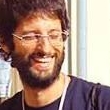Course objectives and programmatic details:
Game based learning and Gamification

COURSE OVERVIEW
Most people play games for “fun”. But, really? And who can define what fun is?
Games can be fun, but they are also much more than that. They have always been used to teach and learn: information, values, norms of behavior. The games we play are in fact very important educational tools: by playing them, future generations learn the skills that will shape their world.
Learning about games and how they are made can be a very powerful asset in the curriculum of any professional in the fields of education and communication. Game design is a very complex discipline that draws from engineering, informatics, psychology, sociology, history, anthropology, communication science, arts and and much more. Including game design elements in other areas of activity is a process called “gamification”, and it is now proven that it can have tremendous benefits, making our activities more engaging, rewarding and “fun”.
The course will follow a very hands-on approach, combining elements of theory, group work and discussion – and experiential phases in which participants will have an opportunity to design their own games and learn from direct experience. The focus will be on social and educational games – plus, it will be fun! The program will cover topics like: LEGO, traditional games, role playing games (RPGs), table top games, digital and videogames.
Key competences acquired by participants
Here are the main objectives of the training:
- to learn about various types of games and their possible uses in education
- to acquire a working knowledge of principles and definitions of game design – and related topics (to name a few: reward mechanisms, activity loops, habit creation, theories of “fun” and engagement, immersive storytelling)
- increase awareness and develop solution on how to include game design elements in educational work (“Gamification”)
- to experience directly a complete process of designing an educational game as a group assignment, following the phases: concept – design – prototype – playtest
When is the next Course and how do I apply?
Target groups: Teachers, educators, youth workers, trainers, coaches, therapists, HR managers: any professional who works with other people as a teacher, guide, mentor, leader or counsellor.
Dates:
18-24 August, 15-21 September, 06-12 October 2024, 29.06-05.07.2025
Fee:
560 € – Learn more about the costs
Location:
Krakow, Poland.
Social programme:
The social programme activities are included within your course fees!
NEED MORE INFORMATIONS?
A few words about course co-ordinator

Pasquale Lanni
Youth worker for generations, Pasquale tried to escape this world enrolling into STEM studies, where he got a degree in Computer Science. But the apple doesn’t fall far from the tree and he found himself involved in local and international projects, aiming to change – a bit – the education system. Trainer and educator, Pasquale has a wide experience in supporting teachers and students inside and outside the school environment. He is specialized in ICT tools for learning, inclusion of people with fewer opportunities and learning in multicultural environments. With the help of many friends, in 2010 he founded Eufemia association, where he currently works from Turin, writing stories and building community projects.
